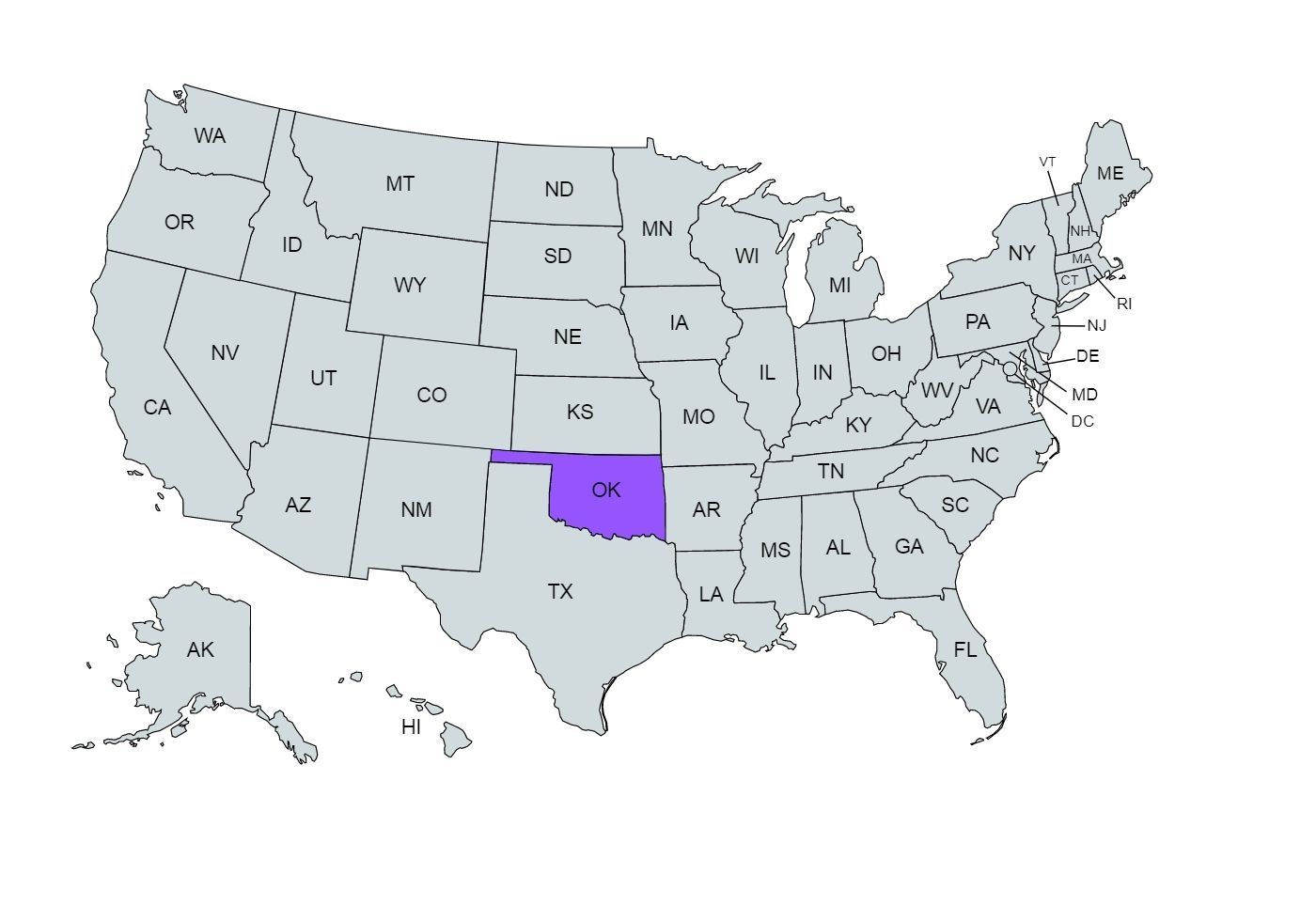Oklahoma Paycheck Calculator: Calculate Your Net Pay
If you’re wondering, “How do I figure out how much money I take home in Oklahoma” we’ve got you covered.
Use our simple paycheck calculator to estimate your net or “take home” pay after taxes, as an hourly or salaried employee in Oklahoma.
Paycheck Calculator
Meanwhile, get ahead with our free resources:
How Does the Paycheck Calculator Work?
Input your salary information, such as wage and pay frequency, and our tool will handle the tax calculations for you. Once you’ve filled in all the information, click the “Calculate Tax” button, and the calculator will provide an estimate of your net or “take home” pay for the specified pay period.
Overview of Oklahoma Taxes
Oklahoma has the 29th largest economy in the United States, with a gross state product (GSP) of approximately $197.2 billion as of December 2018.
The largest single employer in Oklahoma is the United States Department of Defense, employing about 69,000 workers, representing 3.8% of the state's workforce.
Meanwhile, the largest private employer is Walmart, with around 32,000 employees, making up 1.8% of the state's total workforce.

If you decide to start a new job in the "Sooners State", here's what to expect tax-wise.
In Oklahoma, the income tax rate ranges from 0.25% to 4.75%, with the top rate applying to taxable income over $7,200 for individual filers or $12,200 for couples filing jointly and heads of household.
Unlike some states, Oklahoma does not have local income taxes.
Additionally, beyond state income taxes, all U.S. employees have federal income tax, Social Security, and Medicare taxes withheld from their paychecks, with the amount varying based on factors like salary, marital status, and dependents.
Oklahoma's top income tax rate of 4.75% is relatively low compared to other states, but it affects a significant portion of the population due to the relatively low-income thresholds for the highest bracket.
Median Household Income in Oklahoma
Salary in each state is typically based on the cost of living. While salaries vary widely based on position, the median household income in your state can give you a glimpse at the average salary a household is earning in your region.
The figures show a gradual increase in median household income over this period, starting at $43,225 in 2011 and rising to $55,826 in 2021.
There is a consistent upward trend, with occasional fluctuations from year to year.
This data indicates a positive trajectory in household income, suggesting improving economic conditions and potentially an enhanced standard of living for many households during this time frame.
Tips for Maximizing Your Paycheck
Here are some tips to help you maximize your paycheck:
- Become familiar with your payroll deductions
- Understand techniques for reducing your tax
- Fully utilize your work-related perks
- Develop a financial plan and define financial goal
- Look into additional income through extra hours or performance incentives
- Regularly check your pay stubs for inaccuracies
